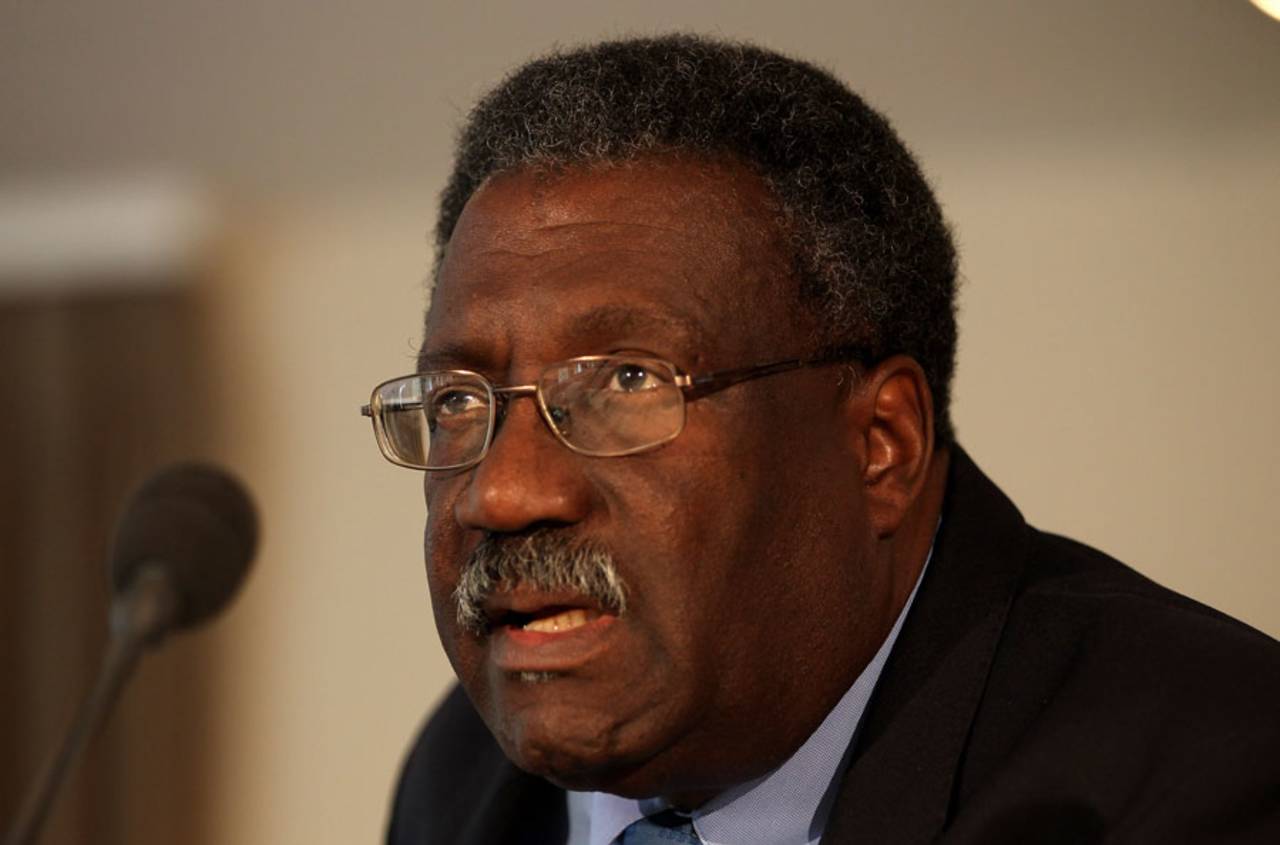One of
Clive Lloyd's many problems as the new head of West Indies' selectors concerns who he is.
As the most celebrated and longest-serving captain during the prolonged period of West Indies' dominance in the 1970s and '80s, subsequent team manager, ICC match referee, cricket committee chairman and much else besides, he is now confidently expected to suddenly wave a magic wand and resurrect the golden era of his leadership after 20 long years of decline. That Courtney Walsh, a revered West Indian who started his long and successful career under Lloyd, is one of the other newcomers on the panel simply heightens expectations.
Lloyd has been careful to immediately point out how difficult a task it is, for a host of obvious reasons. He handed over the captaincy to Viv Richards 29 years ago. The game is all but unrecognisable from what it was then - Zimbabwe and Bangladesh were still to get Test status and lucrative franchise T20 tournaments were hatched a quarter century later. Any improvement will take time and it won't be down to him and his colleagues to make it happen. They can only hope that the pool of players from which they must choose increases in both quantity and quality.
This is all well and good but the pleas for patience from
Deryck Murray, the former West Indies wicketkeeper and Lloyd's trusted deputy during the years West Indies were building their formidable record, are all but wasted on a frustrated public for whom patience is an element long since exhausted.
There is another issue likely to confront Lloyd.
Wes Hall, the fast bowler of the 1960s, was a government minister in Barbados for ten years. When he was made selector (he would later become board president) he said he "found more politics in the West Indies cricket spectrum than I found in the parliament of Barbados".
Lloyd will be fully aware of such potential pitfalls. It is the politics referred to by Hall that twice
blocked Lloyd's attempts to become the West Indies Cricket Board president. He also ruffled feathers in the corridors of the WICB when he accepted the role as head of the Guyana government's interim management committee, appointed to oversee the operations of the Guyana Cricket Board (GCB) four years ago. It is an issue still not settled.
His installation as chief selector signals a rapprochement with the WICB. His initial comments have been realistic, as they needed to be. He saw the new format for first-class cricket that extends the season from one round to two, home and away, as crucial; it doubles the number of matches from seven to 14. There is a provision for a
players' draft for the six territorial teams, although the proposal that overseas pros be also included is unlikely to see the light of day.
He reveals that support staff would be working in different areas with the players. "So we are bringing in experienced people, guys who are accustomed to winning, guys who are professional and that's what we need - a professional body not only on the field but off the field," Lloyd said. In other words, several of those from the Lloyd era. He saw this as a "catalyst that will get us moving again".
Yet, the selectors have no control over the packed international schedule and the falling standards of domestic pitches, facilities and umpiring. The new-look 2014-15 season runs from early November through to next March. In that period, West Indies tour India and South Africa, each for three Tests and five ODIs, before heading to Australia and New Zealand for the World Cup. No sooner than that is over, they return home for three Tests against England through April into early May.
The upshot is that domestic cricket is stripped of its best players. Inadequate conditions have steadily destroyed batsmen's confidence and flattered ordinary bowlers. Last season, there were ten team totals under 150, only four over 400, none higher than Barbados'
479 for 8 declared against Trinidad and Tobago. It is a recurring theme.
For all that, Lloyd remains upbeat. After all, the only way for West Indies cricket to go is up. Given his background, it is not surprising that he places emphasis on up and coming players. His "get 'em young" policy is shaped by personal experience.
On his first assignment as captain, in India, Sri Lanka and Pakistan in 1974-75, he saw Gordon Greenidge, Richards and Andy Roberts, all in their early 20s, rapidly develop into the icons they became. His scores on his own
debut against India in Bombay in 1966-67, aged 22, were 82 and 78 not out.
More recent performances in the home series against New Zealand by 21-year-old opener Kraigg Brathwaite, stroke-maker Jermaine Blackwood, and the towering seamer Jason Holder, both 22, will have reinforced his view.
He kept a keen eye on the recent regional Under-19 tournament where he identified "quite a few good cricketers". The familiar name of Chanderpaul cropped up:
Tagenarine, son of Shivnarine, was the Most Valuable Player.
The trick now is "trying to get them to the standard that is needed". It was a self-evident point.
While the players of the future have A team series and an U-19 World Cup to provide international experience, the unmatched exposure to varying conditions and long, tiring seasons Lloyd's men enjoyed in the English county championship has passed.
Ten of the XI who beat England in the 1979 World Cup final (Desmond Haynes would later join Middlesex) went on to end their seasons with counties; now the only one from the current team is Chanderpaul senior, with Derbyshire. And, as he marked his 40th birthday yesterday, the sun is gradually setting on his long and illustrious career.
West Indies now have to do it on their own. Lloyd's new role is only one step towards a solution.
Tony Cozier has written about and commentated on cricket in the Caribbean for 50 years
